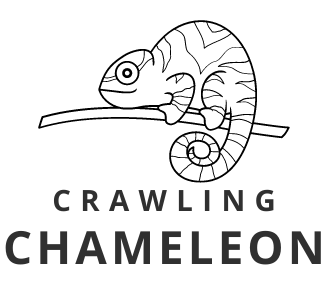The landscape of SEO has undergone significant transformations since the time when our primary focus was creating content for search engines. In today’s era, where search engines prioritize user experience, our approach to content creation has shifted to prioritize user intent. The constantly evolving nature of search engine algorithms has necessitated changes in our tactics and methods to enhance our website’s ranking. Our present-day practices differ considerably from those employed by previous SEO experts.
In 2025, SEO has compelled us to pay attention to certain aspects that we must keep in mind. Ignoring these elements could have negative consequences for both you and your website, as they fail to adapt to the demands of the current SEO landscape. Let’s explore the strategies and changes that characterize SEO in 2025.
Key Google Updates and Ranking Strategies
Before diving into the key aspects to focus on for website ranking in SEO in 2023, let’s take a closer look at the recent Google updates that should be kept in mind.
- February 2023 Product Reviews Update – Enhancing the significance of product reviews for users and businesses alike.
- March Core Update – Delivering valuable, reliable, and firsthand knowledge content to users, prioritizing the best content.
- April 2023 Reviews Update – Recognizing and rewarding high-quality reviews that offer expert-level analysis and original insights. Please note that this update doesn’t affect third-party reviews found in review sections.
These updates reflect the evolving landscape of SEO in 2023 and underscore the importance of staying updated with the latest developments to optimize your website’s performance.
AI-Powered Tools and Content Optimization
This era of AI has brought about significant changes and exciting possibilities for us SEO experts. In the earlier days, we used to spend a lot of time waiting for content ideas to emerge before sharing them publicly. Creating good content required a huge time and effort during that period. However, with the emergence of AI tools, a lot of pressure has been lifted off our shoulders.
AI tools like Google Gemini have revolutionized the way we generate ideas and SEO advancements in 2025. They provide us with valuable insights and suggestions in lesser time along with helping us with tasks such as keyword research. By using AI-powered prompts, we can now obtain creative ideas, making the content creation process much more efficient and streamlined.

As SEO evolves, it becomes increasingly complex. Search engines are becoming smarter and more sophisticated in understanding user intent. It’s no longer enough to focus solely on optimizing for keywords; we must also prioritize delivering content that aligns with the users’ needs and intentions.
With AI, we can analyze vast amounts of data and gain a deeper understanding of user behaviour, preferences, and search patterns. This knowledge allows us to tailor our SEO strategies to provide the most relevant and valuable content to our target audience. Also we shouldn’t ignore the fact that Google’s Featured Snippets are now powered by AI, and Google is also using AI to personalize search results.
Optimizing Websites for Voice Search and Schema Markups
Voice search has gained importance as an increasingly popular method for users to interact with search engines. People now use voice assistants and mobile devices to ask questions or perform searches by speaking rather than typing. As a result, SEO professionals must recognize the significance of optimizing their websites for voice search queries.
With the increasing importance of voice search as a means to find information, SEO professionals will need to adapt online visibility methods in 2025. It is now equally important to focus on long-tail keywords in addition to maintaining natural language. Furthermore, schema markups play a significant role in helping Google understand our content.
Meanwhile Google analytics 4 is bringing a challenge for those who are struggling till now understanding its difference from Universal Analytics and and a mechanism which is quite different now. The event based results is not a thing from which we were used to in UA.

As we look ahead to July 2023, it becomes apparent that we will no longer have the option to rely on Universal Analytics. All doors will be closed, and we must transition fully to Google Analytics 4. This transition brings with it a learning curve and the need for a comprehensive understanding of the new platform’s functionalities and metrics. It is crucial for us to adapt to this change following SEO trends of 2023 and familiarize ourselves with the updated tools and methodologies to ensure the continued success of our analytics efforts.
In conclusion, the year 2023 has witnessed remarkable developments in the realm of SEO. The introduction of E-E-A-T, with a simple addition of a single letter, has transformed the landscape of content expertise and Google’s preferences. This shift has emphasized the importance of providing first-hand, authoritative content for improved visibility.
Looking ahead to March 2024, Google’s ongoing commitment to enhancing user experience will lead to the replacement of First Input Delay (FID) with Interaction to Next Paint (INP) as a Core Web Vitals metric. FID’s focus on user interaction time after page load will be succeeded by INP, which measures the speed of visual response after user interaction. These changes underline the significance of optimizing web pages for seamless user experiences.
As we move forward, it is crucial for SEO professionals to adapt and stay updated with the latest advancements. Embracing AI tools, understanding user intent, and personalizing search results will remain integral to successful SEO strategies in 2025 and beyond.

